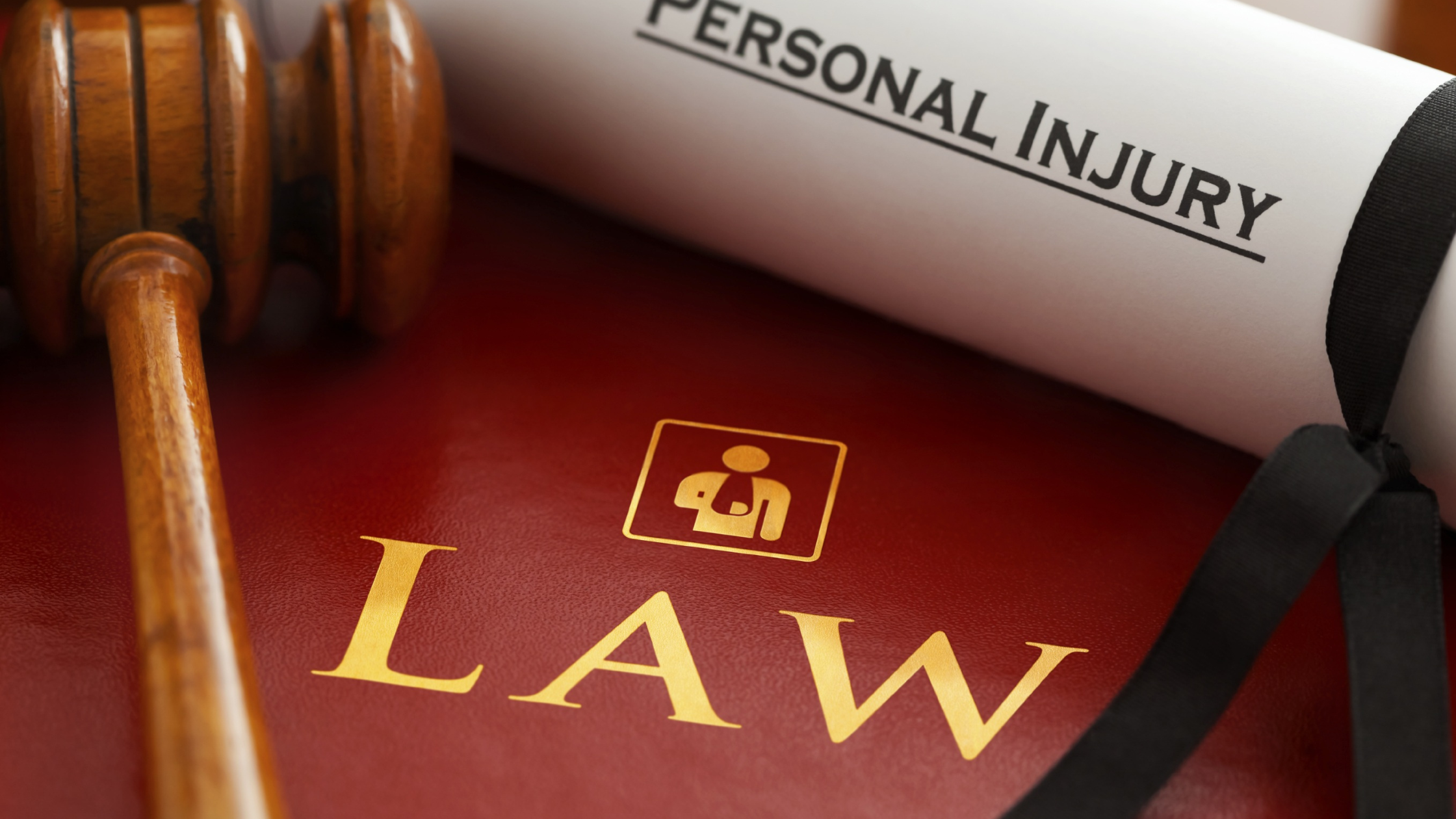
Understanding Personal Injury Claims: What You Need to Know
Introduction: What is a Personal Injury Claim?
A personal injury claim is a legal process through which an injured individual seeks compensation for the physical, emotional, and financial damages they have suffered due to the negligence or intentional actions of another party. In such cases, the injured person, known as the plaintiff, files a lawsuit against the responsible party, also known as the defendant. The goal is to hold the defendant accountable for their actions and receive financial compensation to cover medical expenses, lost wages, pain and suffering, and other related costs.
How Do Personal Injury Claims Work?
Personal injury claims typically involve a series of steps that are designed to help victims seek justice and receive fair compensation for their injuries. Here is a step-by-step breakdown of how personal injury claims work:
Seek Medical Attention: The first priority after sustaining an injury should always be seeking medical attention. It is crucial to document your injuries and receive appropriate treatment from healthcare professionals.
Gather Evidence: To build a strong personal injury claim, it is essential to gather evidence that supports your case. This may include medical records, accident reports, witness statements, photographs of the accident scene or injuries, and any other relevant documentation.
Consult with an Attorney: It is highly recommended to consult with a personal injury attorney who specializes in handling such cases. They can provide expert guidance throughout the process and ensure that your rights are protected.
File a Complaint: Once you have hired an attorney, they will help you file a complaint against the responsible party. This initiates the legal proceedings and formally notifies the defendant about your intention to seek compensation.
Negotiations and Settlements: In many cases, personal injury claims are resolved through negotiation between your attorney and the defendant's insurance company or legal representation. They may offer a settlement amount in exchange for dropping the lawsuit. Your attorney will help you evaluate these offers and negotiate for a fair settlement.
Litigation and Trial: If a fair settlement cannot be reached, your case may proceed to litigation. This involves presenting your case in court before a judge or jury. Your attorney will represent you throughout the trial, presenting evidence, calling witnesses, and arguing your case.
Verdict and Compensation: Following the trial, the judge or jury will determine whether the defendant is liable for your injuries and, if so, assess the amount of compensation you are entitled to receive. If you win your case, you will be awarded damages to cover medical expenses, lost wages, pain and suffering, and other related costs.
How Long Does a Personal Injury Claim Take?
The duration of a personal injury claim can vary significantly depending on various factors such as the complexity of the case, the severity of injuries, and whether it goes to trial. While some cases can be resolved within a few months through negotiations and settlements, others may stretch out over several years if they require litigation.
It is important to note that personal injury claims involving severe injuries or complex legal issues tend to take longer to resolve. Additionally, if multiple parties are involved or liability is disputed, it can further prolong the process. However, an experienced personal injury attorney can provide an estimated timeline based on the specifics of your case.
How to Claim Compensation for Personal Injury
To successfully claim compensation for personal injury, there are several essential steps you need to follow:
Document Your Injuries: Keep detailed records of your injuries by obtaining medical reports and bills from healthcare providers. This documentation will serve as crucial evidence when seeking compensation.
Gather Evidence: Collect all relevant evidence related to your accident or injury. This includes accident reports, photographs of the scene or injuries, witness statements, and any other documentation that supports your claim.
Consult with an Attorney: Seek the guidance of a qualified personal injury attorney who can evaluate your case and provide expert advice on how to proceed. They will help you navigate the legal process and ensure that your rights are protected.
File a Claim: Your attorney will assist you in filing a claim with the responsible party's insurance company. This involves submitting a demand letter that outlines your injuries, medical expenses, lost wages, and other damages incurred.

Negotiate for a Fair Settlement: The insurance company may offer a settlement amount to resolve your claim. Your attorney will review the offer and negotiate on your behalf to ensure you receive fair compensation that adequately covers all your losses.
Consider Litigation: If a fair settlement cannot be reached, your attorney may recommend pursuing litigation. This involves filing a lawsuit against the responsible party and presenting your case in court.
Attend Mediation or Trial: Prior to trial, mediation may be suggested as an alternative dispute resolution method. In this process, a neutral third party facilitates negotiations between both parties to reach a mutually acceptable resolution. If mediation fails, the case proceeds to trial where a judge or jury will make a final determination.

Receive Compensation: If your claim is successful either through settlement or trial, you will receive compensation for your injuries and losses as determined by the court or agreed upon in the settlement.
Frequently Asked Questions (FAQs)
1. How long do I have to file a personal injury claim? You generally have a limited period known as the statute of limitations within which you can file a personal injury claim. The specific timeframe varies depending on jurisdiction and the type of accident or injury involved. It is crucial to consult with an attorney promptly to ensure you don't miss any deadlines.
2. Will my case go to trial? Not all personal injury claims go to trial. In fact, most cases are resolved through negotiation and settlement. However, if a fair settlement cannot be reached, or the responsible party denies liability, your case may proceed to trial.
3. How much compensation can I receive for my personal injury claim? The amount of compensation you can receive for your personal injury claim depends on various factors, including the severity of your injuries, the impact on your daily life, medical expenses, lost wages, and pain and suffering. An experienced attorney can assess the specifics of your case and provide an estimate of the potential compensation you may be entitled to.
4. Can I handle my personal injury claim without an attorney? While it is possible to handle a personal injury claim without an attorney, it is highly recommended to seek legal representation. Personal injury laws Personal Injury Claims Brisbane are complex, and insurance companies often employ tactics to minimize their liability. An experienced attorney can navigate these complexities and ensure that your rights are protected while maximizing your chances of receiving fair compensation.
5. Will hiring an attorney increase my chances of receiving fair compensation? Yes, hiring an attorney significantly increases your chances of receiving fair compensation. Attorneys specializing in personal injury claims have in-depth knowledge of relevant laws, negotiation strategies, and trial experience. They will advocate for your best interests and ensure that you are not taken advantage of wtlaw.com.au by insurance companies or opposing parties.
6. How much does it cost to hire a personal injury attorney? Most personal injury attorneys work on a contingency fee basis, which means they only get paid if they win your case. Their fees are typically a percentage of the total compensation awarded. This arrangement allows injured individuals access to legal representation without upfront costs or financial risk.
Conclusion
Understanding personal injury claims is crucial if you or someone you know has been injured due to someone else's negligence or intentional actions. By following the necessary steps outlined in this article and seeking professional legal guidance from a qualified personal injury attorney, you can navigate the complex process of filing a claim and increase your chances of receiving fair compensation for your injuries and losses. Remember, time is of the essence, so don't delay in seeking legal advice to protect your rights and pursue the compensation you deserve.